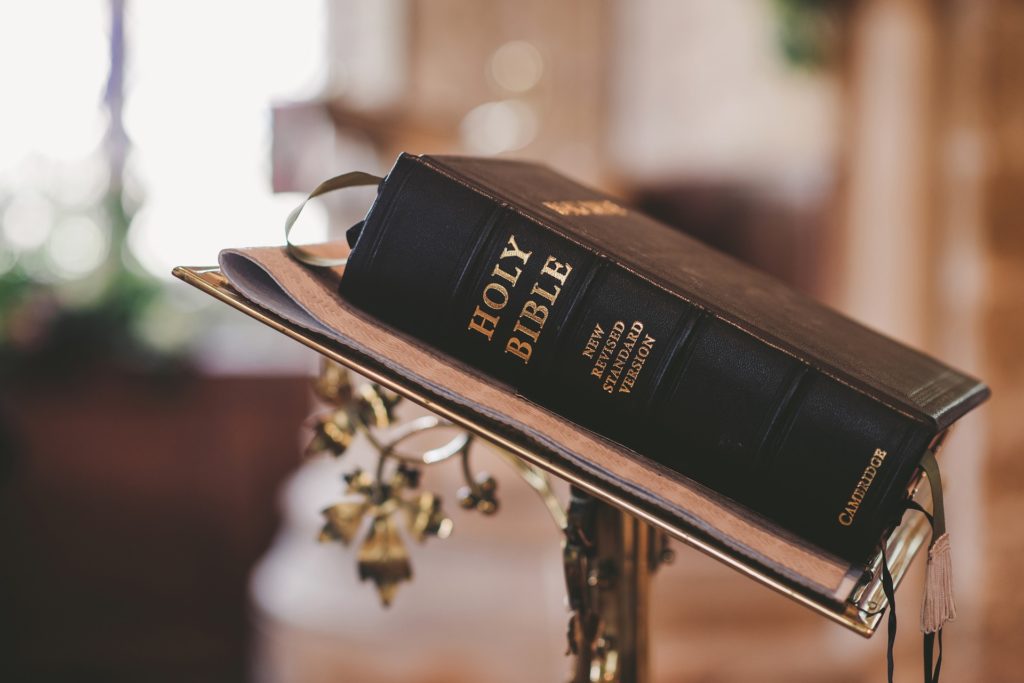
The Prophetic Word (2 Peter 1:16-20)
Scripture has great power to convert (Rom. 1:16; Heb. 4:12).
Scripture derives that great power to convert from the fact the gospel came from the hand of God. In 1 Peter 1:16-21, the Apostle Peter speaks of the origin of the prophetic word. He points out the revelation to apostles and the inspiration to holy men.
The Revelation to Apostles, vv 16-18
Peter denies that he and the other apostles followed “cleverly invented stories” when they preached about Christ. The Greek term translated “myths” or “stories” was a term used for negatively untrue stories. Myths have long been a problem in Christianity (1 Tim. 1:4; 2 Tim. 4:4).
Peter had every right to claim that what he declared was true, for the apostles “were eyewitnesses of his majesty.” In this context, Peter specifically speaks of the Transfiguration—he claims that he and James and John beheld the Transfiguration with their own eyes. Throughout the New Testament, the apostles claimed to be eyewitnesses (Jn. 1:14; 1 Jn. 1:1-3).
Here we see one of the ways God revealed his will to man: through the eyewitness of the apostles. Before the apostles God used a multitude of methods to reveal his will to man. Hebrews 1:1. God did use “various ways” to communicate his truth (e.g., speak directly to the prophets, use symbolism through the prophets).
In the New Testament era, God revealed his will to inspired men. Jesus taught the apostles what God had given him: “I gave them the words you gave me and they accepted them” (Jn. 17:8). Jesus promised that God would reveal his will through the Holy Spirit: “The Counselor, the Holy Spirit, whom the Father will send in my name, will teach you all things and will remind you of everything I have said to you” (Jn. 14:26).
No, we have no myth in New Testament, but we have the revelation of God to the apostles.
The Inspiration to Holy Men, vv 19-21
The word of the prophets has been made more certain, and we would do well to pay attention to it. The clause “we have the word of the prophets made more certain” is quite puzzling. The question naturally arises, “We have the word of the prophets made more certain than what?” In what way is the message of the prophets more certain than the eyewitness testimony of the apostles? Peter seems to be saying, “You don’t just have to take my word about who Jesus is, but you can go back and look at the prophets, too.”
Peters’ readers would do well to pay attention to Scripture as to a light shining in a dark place. We need to pay attention to Scripture: that word will judge us (Jn. 12:48), that word will purify our lives (Ps. 119:9), and that word will produce faith (Rom. 10:17). The word is a light shining in a dark place (Ps. 119:105; Prov. 6:23).
We need to understand that no prophecy of Scripture came about by the prophet’s own interpretation. There have been various interpretations of what “any private interpretation” means. The Catholic Church holds this means the church must interpret Scripture. Others claim that this verse means that men cannot just make anything out of Scripture that they desire it to mean. Yet, I think that Peter is pointing to the origin of Scripture, and he says that prophecy did not originate in the private interpretations of the prophets.
Prophecy never had its origin in the will of men. God was always the origin of Scripture; the prophets made that abundantly clear (Jer. 1:9; Joel 1:1). The New Testament writers claimed the same origin for their words (1 Cor. 2:13; 1 Thess. 4:15).
Men spoke from God as they were carried along by the Holy Spirit. There are a multitude of theories of inspiration in modern biblical scholarship (e.g., the natural inspiration theory, mystical inspiration theory, concept inspiration theory, and the mechanical inspiration theory). But Peter says that the proper idea of inspiration is that men “were carried along by the Holy Spirit.” “Carried along” was a Greek term used for the carrying along of ships by the wind. The Holy Spirit, then, took the human writers of Scripture with their abilities, knowledge, and literary styles, and took them where he wanted. The Holy Spirit was the instrument through which the Scriptures were inspired (Acts 1:16; 28:25).
Because it originated with God, the Bible has power like no other book. Hebrews 4:12. This book will take hold of us, challenge us, and change us like no other book. Has Scripture taken hold of you, challenged you, and changed you?
This sermon was originally preached by Dr. Justin Imel, Sr., at the Owingsville church of Christ in Owingsville, Kentucky.





